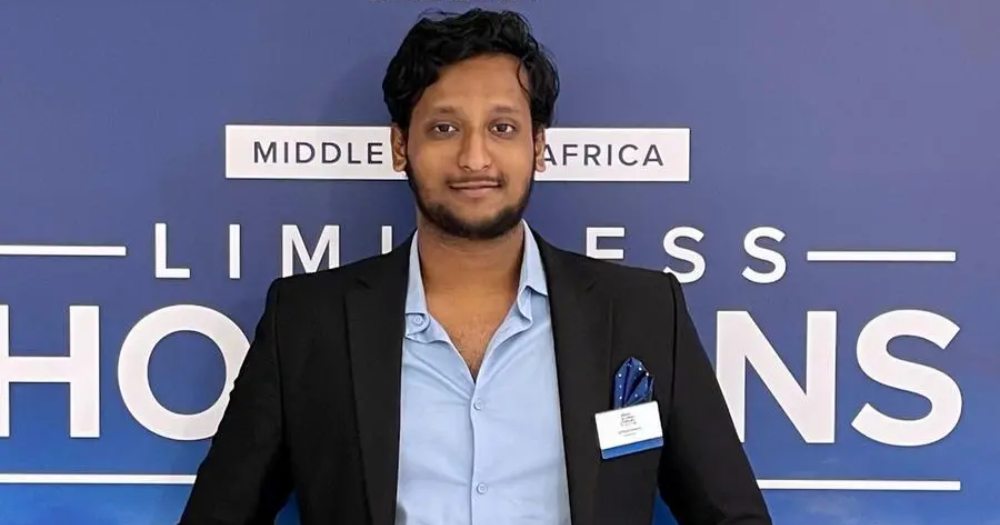Interview with Affaan Shaikh, founder & CEO of IntelliDent AI

Our latest interview is with Affaan Shaikh, an AI engineer and neuroscientist passionate about building impactful solutions where artificial intelligence, neuroscience, and medical technology intersect. He is also the founder of two HealthTech startups - IntelliDent AI and Neuratia Labs. So, obviously, Affaan is a cool and interesting guy, and we couldn't wait to hear what he had to say. Read on for details.
Can you tell us a bit more about yourself? What's your background?
Absolutely. I'm Affaan Shaikh, an AI engineer and neuroscientist by training, with a deep passion for building impactful solutions where artificial intelligence, neuroscience, and medical technology intersect. I've published over ten research papers in this space and have mentored more than twenty students in their research journeys. My core expertise lies in applying AI and machine learning to diagnose neurodegenerative diseases, enhance brain-computer interface systems, and solve real-world healthcare challenges. I've also explored AI use cases in the aviation sector, but healthtech is where my heart truly lies.
I believe technology, when applied thoughtfully, can bring tangible improvements to how we manage health and wellbeing in our everyday lives.
Let's speak about your company. What is the market problem you want to solve and where do you see the opportunity?
Sure. I'm currently the founder and CEO of IntelliDent AI — a digital health platform focused on dental diagnostics using AI and smartphone imaging. We noticed that millions of people, especially in emerging markets, delay or skip dental check-ups due to cost, fear, or limited access to professionals. That delay can lead to more severe issues. Our goal is to make dental diagnostics accessible, fast, and affordable — right from your phone.
The opportunity lies in preventive healthcare. We're moving towards a world where health decisions are becoming more decentralized and data-driven. IntelliDent fits into that shift by giving people the tools to take control of their oral health early on, without waiting for symptoms to get worse.
What are the features differentiating your offering from competitors?
First, accessibility — our solution doesn't require any special hardware; just a smartphone and a few seconds.
Second, personalization — the reports generated are tailored based on a person's oral health condition, risk level, and recommendations.
Third, speed — we use optimized AI models that analyze images and generate a full PDF report in under a minute.
And finally, affordability — while many platforms are built for high-end clinics or require subscriptions, we're building for the everyday user and local dental practices that want to modernize without breaking the bank.
We're also making our product multilingual and culturally adaptive for the MENA region, which most global players overlook.
Can you share some numbers and achievements of the business?
While we're still in our development phase, we already have a working MVP that's showing very promising results. We've been able to validate our technology in controlled environments and are seeing positive outcomes in terms of diagnostic performance and user experience. What's exciting is that we've started forming key partnerships — including with hospitals, dental clinics, universities, and even some government bodies — to kick off our official trials. These pilots are set to begin soon in the UAE, India, and Saudi Arabia.
We're also in active discussions with health-focused NGOs and innovation units to expand our reach in underserved areas. Even at this early stage, the interest and engagement from stakeholders has reaffirmed the real need for accessible, AI-powered dental diagnostics in this region.
What are your medium-term plans?
In the next 12-18 months, our focus is on three things: first, scaling our product across the GCC and South Asia with localized versions; second, introducing a B2B model for clinics, insurers, and schools to use our API or dashboard; and third, strengthening our backend with a self-learning model that improves with every scan.
Beyond IntelliDent, I also want to explore adjacent solutions — like using EEG-based headbands for brain health monitoring at home — another area I'm deeply involved in.
Long-term, the vision is to build a suite of accessible, AI-driven diagnostic tools that people can use from the comfort of their homes.
Do you have some advice for other entrepreneurs in the digital health space in MENA?
Yes — a few things. First, focus on solving a real, day-to-day problem, not just a tech novelty. Healthcare is personal, and unless you're improving someone's life meaningfully, adoption won't come easy.
Second, be compliant and ethical from day one. Data privacy, regulations, and clinical accuracy are not optional — especially in healthtech. And third, listen. Talk to patients, doctors, insurance providers — let them guide your product roadmap.
The MENA region is full of potential, but it also comes with cultural nuances. Build with context, not just code.
Anything to add for the end?
Just this — we're at a pivotal moment in healthcare where technology is no longer just an enabler, but a driver of transformation. But it's not just about AI or innovation — it's about empathy, trust, and responsibility. At IntelliDent AI, and in all my work, I try to bring those values into the core of what we build.
I'm excited for what's ahead — not just for my company, but for the broader ecosystem in MENA that's waking up to the power of digital health.
💡Did you know?
You can take your DHArab experience to the next level with our Premium Membership.👉 Click here to learn more
🛠️Featured tool
 Easy-Peasy
Easy-Peasy
An all-in-one AI tool offering the ability to build no-code AI Bots, create articles & social media posts, convert text into natural speech in 40+ languages, create and edit images, generate videos, and more.
👉 Click here to learn more


